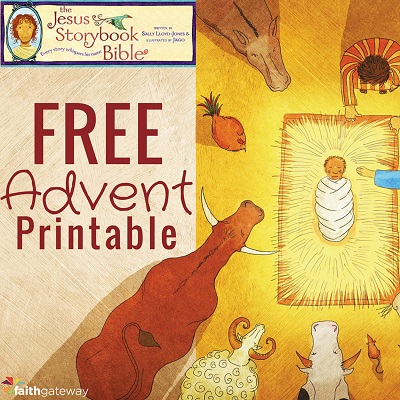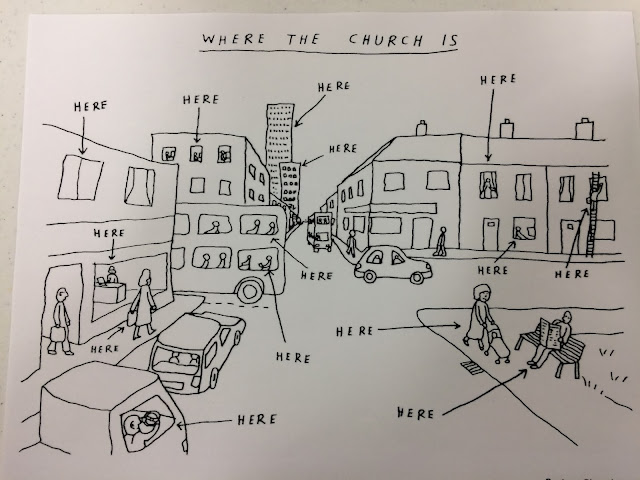If you are anything like me honoring a contemplative and Holy Advent requires me to
a. Plan
b. Let go of perfect
c. Not buy into the busy
While some are natural contemplatives and others are seasoned practitioner I feel as if I am always beginning again in my journey to slow down and savor. To be still.
I also really like shopping which I am finding is not always the most contemplative act on my part.
As a family with young children the noise and commercialization of Christmas is a stark contrast to the Holy waiting I hope for us during this time. Last week we took our children to Boar's Head for a beautiful tree lighting and visit with Santa. Jay and I couldn't wait to hurry up and be done. It was loud. People were angry. Patient waiting was nowhere to be seen. It was a reminder for me that if we want to dwell in the Holy we better make space for it... it was also a reminder that for our family the Holy is not in waiting in a long line for Santa.
If you need some direction this season, there are many resources below. There is something for everyone but please remember that taking time to do NOTHING is often a Holy and hard practice.
..............................................................................................................
best for: adults, teens, tech-savvy, & contemplative types

Praying in color free downloads of printable Advent calendars created by an amazing Episcopal educator, Sybil Macbeth, that allows prayer and contemplation through coloring. Print out the calendar and each day pray and color. You will end up with a beautiful art piece that reflects your personal prayer life and walk through this season.
best for: all ages, the artistic, doodlers


Jesus Storybook Bible Advent Calendar a FREE downloadable Advent calendar with readings for each day from The Jesus Storybook Bible, which I consider the best children's Bible around. A short daily reading that brings you all the way to the birth of Christ. My family uses this advent calendar with our children (5 & 2 years) along with a daily activity (this year with the kindness calendar you can find below)
best for: preschool-3rd grade, Jesus Storybook Bible needed

Kindness Calendar gives an act of kindness for each day in Advent. This is just one example. Families can work together to brainstorm their own acts of kindness that are meaningful to them. A wonderful way to get even the youngest child involved. This can be done along with family living outside of the home (cousins, children at college, extended family, friends) as a way to stay connected to each other and have a unified focus of giving.
best for: all ages, pre-school, elementary school, middle & high school, inter-generational

Unwrapping the Greatest Gift by Ann Voskamp a beautifully illustrated book that has a reading for each day as well as questions to reflect on as a family. When you buy the book you will also receive a code that allows you to print off paper ornaments that correspond with each reading and create a Jesse Tree. You can create an actual tree from branches to use as a sacred space in your home this season and add an ornament each day as you read through this book. Beautifully illustrated, written, and executed. Wonderful for both children and adults. The Jesse Tree element is not necessary to benefit from this book but an added bonus for those that connect with tangible elements.
best for: 3rd grade and up, families, individuals

The Greatest Gift by Ann Voskamp from the author of Unwrapping the Greatest Gift this book is geared towards adults and allows for written reflection at the end of each day's reading. "I don't want a Christmas you can buy. I don't want a Christmas you can make. What I want is a Christmas you can hold. A Christmas that holds me, remakes me, revives me. I want a Christmas that whispers, Jesus" -Voskamp
best for: adults

Truth in the Tinsel an e-book for purchase that has daily activities that help little ones understand that this season is about Jesus. It takes some commitment in terms of preparation and time but if your heart is behind it, it can be a wonderful Advent practice. There are even printable ornaments you can buy if you would like to take a step away from creating everything needed.
best for: early elementary
 Watch for the Light Reflections from the world's greatest spiritual writers including Aquinas, Bonhoeffer, Gutierrez, & Merton. Daily readings from the greats that carry through to Epiphany. A wide range of writings compiled for reflection, education, and allowing you to await the coming of Christ. This will be my personal Advent read if you want to grab a coffee and muse over some meaningful reflections!
Watch for the Light Reflections from the world's greatest spiritual writers including Aquinas, Bonhoeffer, Gutierrez, & Merton. Daily readings from the greats that carry through to Epiphany. A wide range of writings compiled for reflection, education, and allowing you to await the coming of Christ. This will be my personal Advent read if you want to grab a coffee and muse over some meaningful reflections!best for: adults
The Giving Manger is a fun & interactive Christmas tradition that helps families focus on giving, the true meaning of Christmas and the spirit of service. Join the Rutledge Family this year as we use this as our Advent touchstone throughout the season.
best for: preschool-3rd grade
Celebrating our saints!
St. Nicholas on December 6th: How our family works through the 'Santa' of Christmas is to celebrate the Bishop of Turkey who gave his inherited wealth to children in need. A few ways to do that are:
- Watch the Veggie Tales made that tells the story of St. Nicholas. It is a well-done and child friendly way to explain St. Nick!
- Leave treats in children's shoes to mark the day, which is how St. Nicholas shared what he had with the children he helped
- This is a great day to have children go through their toys and decide what would be best to donate to others and together take them to a donation center.
- This is also a perfect day to shop for a child chosen from a giving tree

St. Lucia Day on December 13th: St. Lucia (Lucy) was a young girl who brought persecuted Christians in Rome food when they were forced underground into the catacombs. She wore candles around her head so that she would have two hands to hold food while also being able to see. Some ways to celebrate this day are
- Volunteering at a local food pantry to sort or distribute food and/or buying food to donate. The most needed foods are often canned meats, nut butters, bags of fruits or vegetables, and bread.
- Educating our children about other people of faith in our community who are forced into hiding because of their beliefs and donate to them or write a note of encouragement to them, such as the Islamic Society of Central Virginia
- Be light in whatever way is life-giving and meaningful to your family. St. Lucia Day always falls near the winter solstice, the shortest day of the year.










